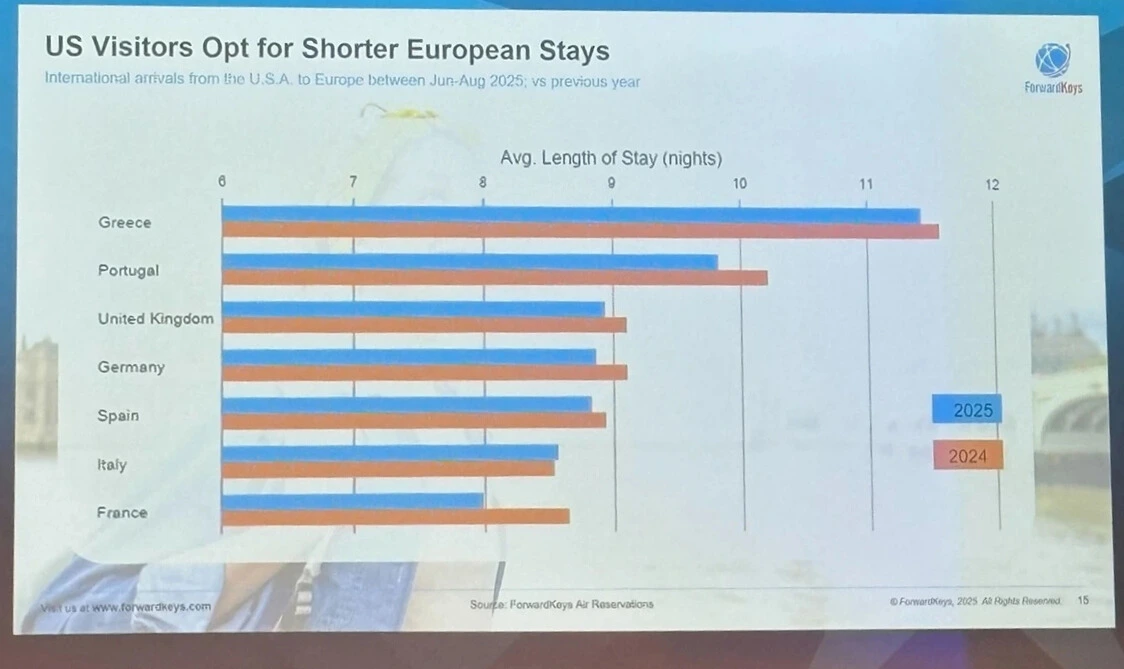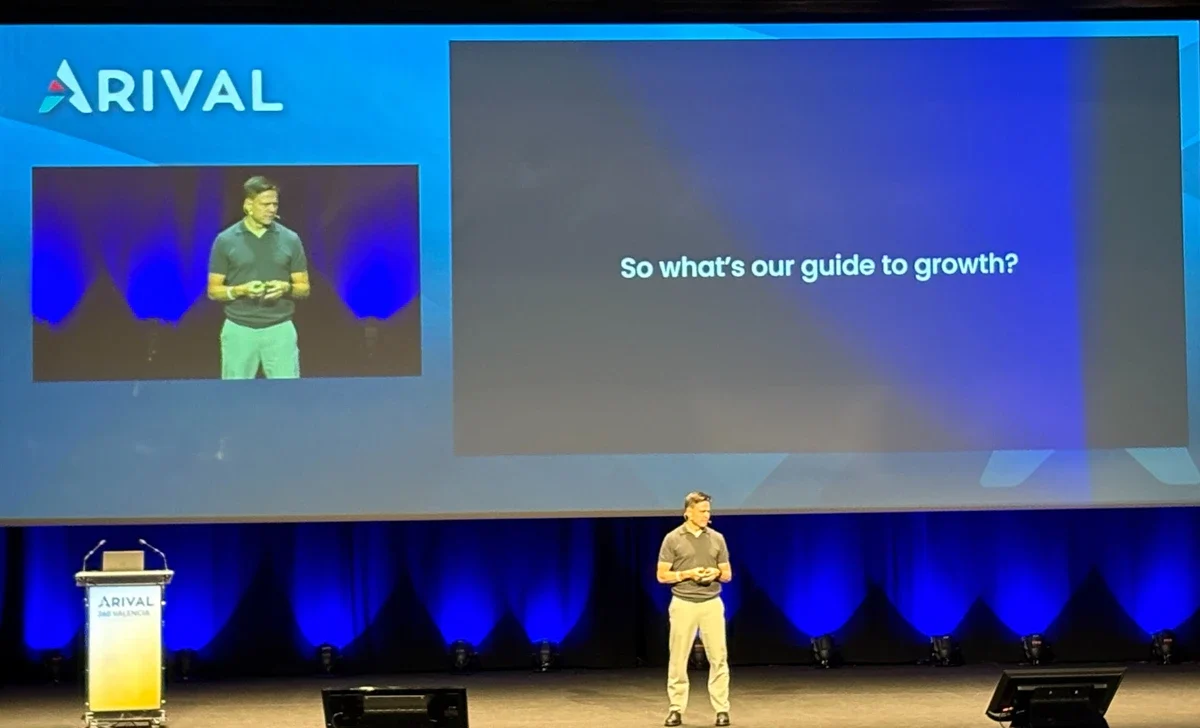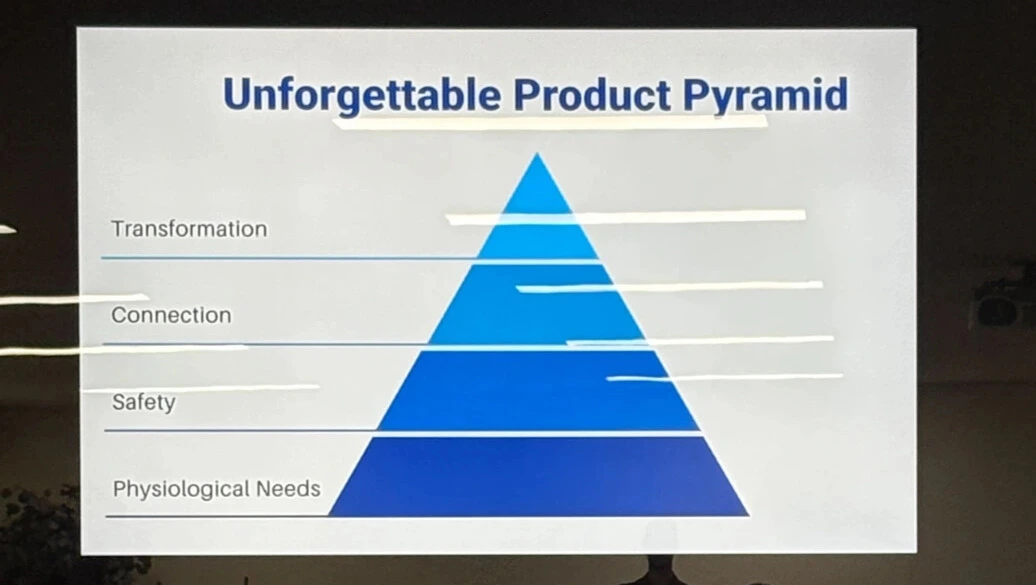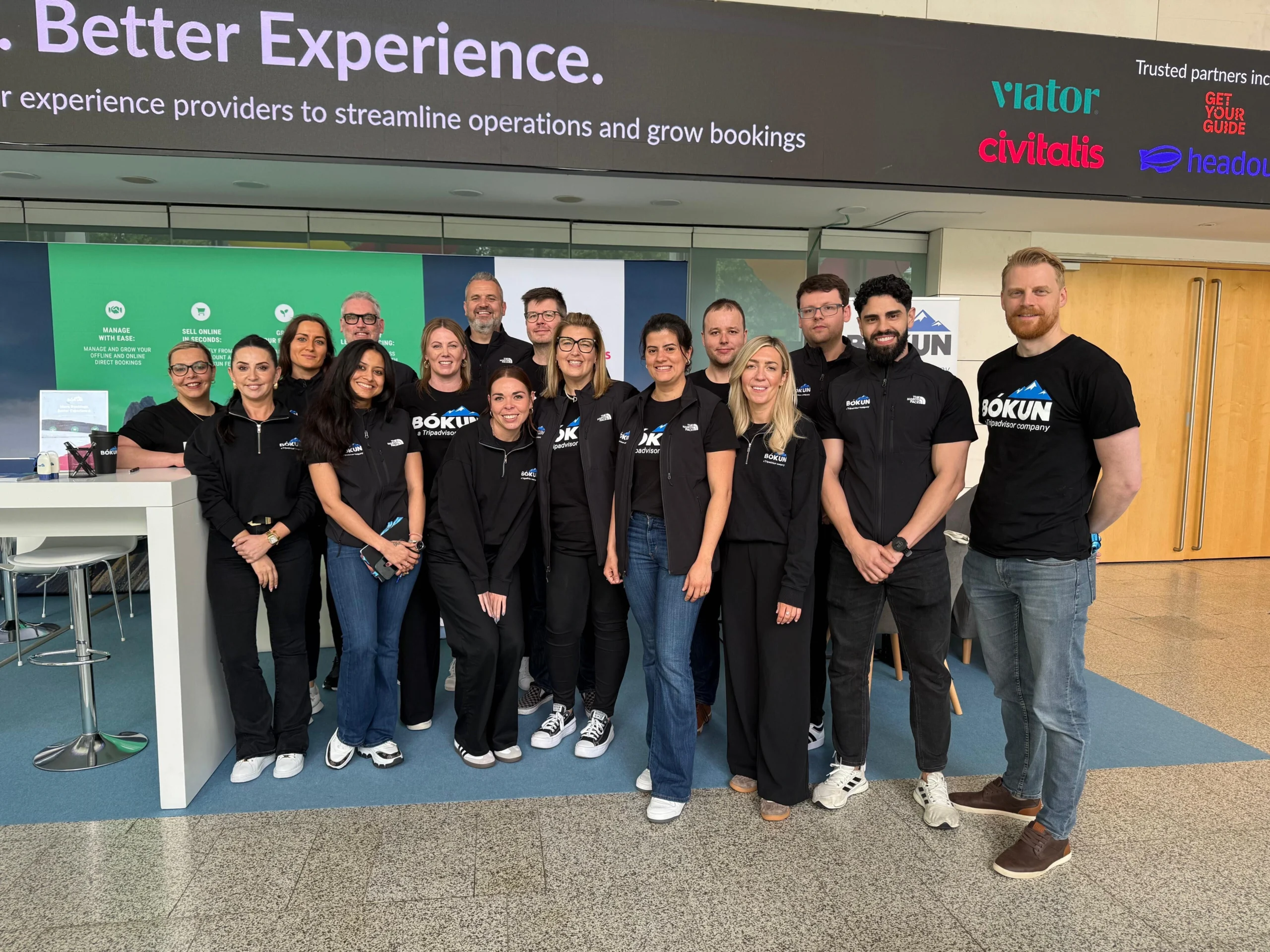The overall theme at Arival Valencia 2025? The tourism industry is evolving quickly.
The Bókun team attended a number of insightful talks and discussions around emerging trends, new technologies, new travel habits and much more. We’ve broken down our key takeaways on some of the biggest ideas shaping industry and how operators are reacting to new opportunities.
Create a strategy for direct bookings
Operators should look to diversify their booking channel mix between direct and indirect sources to build long-term stability. Direct channels offer numerous advantages such as higher profit margins, increased customer lifetime value, and upselling opportunities.
According to Brennen Bliss, the landscape is shifting though: a study showed that the click-through rate (CTR) for Google’s position fell from 32% in November 2023 to just 14.2% in 2024, highlighting how AI-generated search results are pushing traditional SEO tactics down the funnel.
However, operators are seeing new opportunities to gain traction and diversify their revenue channels. Platforms like Pinterest, TikTok, and Snapchat still offer strong audience engagement, especially when content is tailored (e.g., culinary, history, or ghost tours). Organic social click-through rates are improving and Google Ads, while highly competitive, remains a powerful tool for bottom-of-funnel conversions—especially for multi-location operators.
Want to find out more about creating a direct booking flywheel? Watch our webinar with Brennen Bliss from Propellic here.
The rise of AI in tourism
AI is here to stay, and it’s already changing the game for SEO, content, and marketing strategies. One of the main takeaways for operators is to make AI tools work harder for you. Give them roles—like “SEO strategist” or “customer journey expert”—and see how they can help to streamline workflows and speed up content creation.
AI tools are growing in popularity due to the ability to make personalised trip itineraries for travellers, with 22% of US and 14% of UK travellers having used them.
There was also discussion about how AI ‘guides’ may become a mainstay in the industry. Whether integrated into mobile apps, or even humanoid robots(!), AI tour guides are capable of answering questions, creating itineraries, and sharing historical or cultural insights. Their ability to operate 24/7 and cater to multiple languages makes them especially valuable in busy tourist destinations, offering convenience and accessibility.
However, while AI tools are growing in popularity Sara King, from Intrepid, pointed out, “the brands that thrive will be the ones who continue to prioritise human connection.”
Changes in Traveller Habits and Booking Trends
“Shoulder-season” travel- journeys taken during the periods just before or after peak tourist seasons – is becoming an increasingly popular strategy to combat overtourism and mitigate climate change.
Intrepid Travel noted that they are aiming to reduce the amount of tours taken during the hottest months of the year, July and August, and have seen a 21% spike in visits to cooler Northern European regions.
Additionally, online searches for “shoulder season travel” surged by 300% in the past year, with 44% of Brits having a shoulder-season getaway booked. This shift not only offers travelers more comfortable conditions and fewer crowds but also contributes to alleviating overtourism and reducing the environmental impact associated with peak travel periods.

The Best of the Rest
LivTours discussed the importance of sticking true to your mission. Since its humble beginnings in 2004, Live Tours has grown from a passionate one-man operation into a values-driven travel company operating in 26 destinations with over 400 products. What started with a homemade website and a dream evolved throughout the years.
The breakthrough came with a bold decision: to offer small, max 6 people groups. By putting people at the heart of everything, LivTours not only weathered industry challenges and a pandemic but emerged stronger. Today, the company’s mission remains clear: embrace growth patiently, stay true to your values, and always put people first.
Find out more about LivTours Journey here.

A mere 0.2% of destinations account for 48% of all reviews – highlighting the need for diversification among destinations to combat overtourism and disseminate profits from tourism to more communities.
Despite rising costs, travelers aren’t cutting back on experiences—they’re just taking shorter trips. Douglas Quinby noted that we’re “shortening trips” rather than eliminating them. Flexibility is key here: operators offering Buy Now, Pay Later options are set to benefit. The payment methods are a great tool to increase conversions, reduce booking hesitation, and capture last-minute or shoulder-season interest. For example, 60% of Coachella tickets were bought via Buy Now, Pay Later.

And finally, the Experiences industry is about inspiring travellers and creating unforgettable moments. It’s important to carry this thinking through from the research stage to the after the experience. Peter Muttitt encouraged operators to stop using stock images and fill their adverts with real-life people on their experiences. While Kelsey Tanner highlighted the importance of creating WOW moments for guests.
Enjoy staying up-to-date with the latest industry trends and insights, as well as Bókun news? Follow us on our LinkedIn page here!
